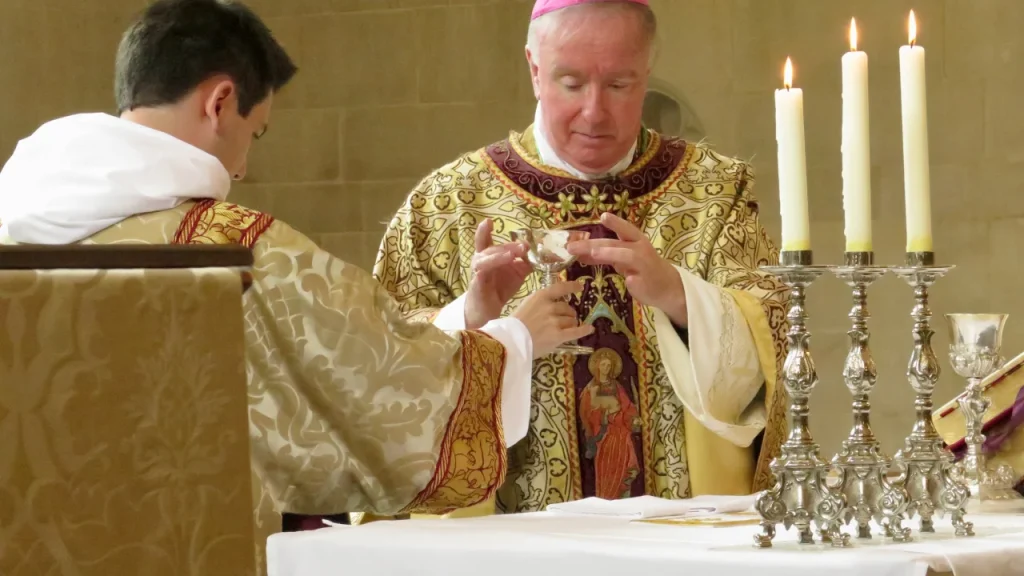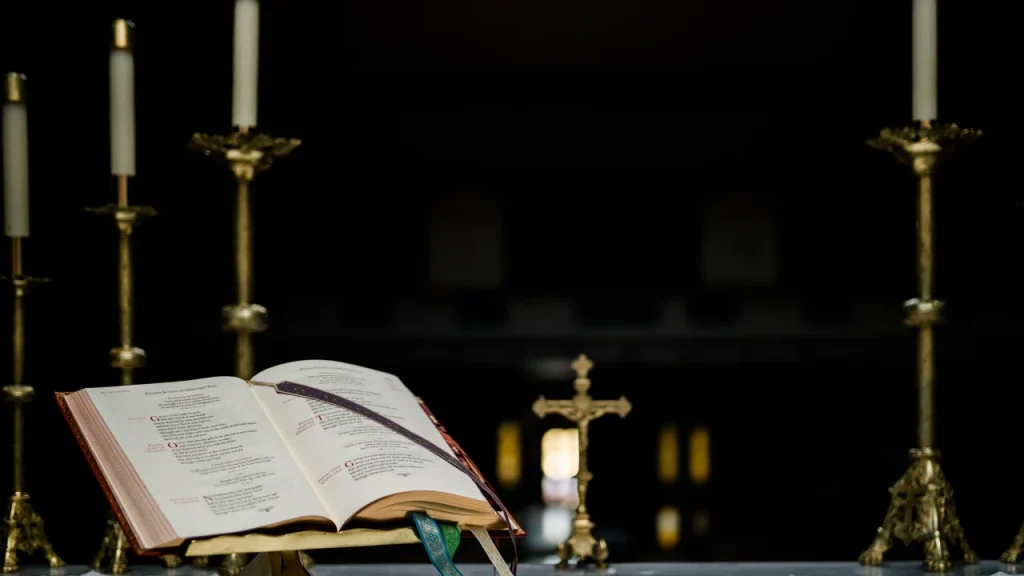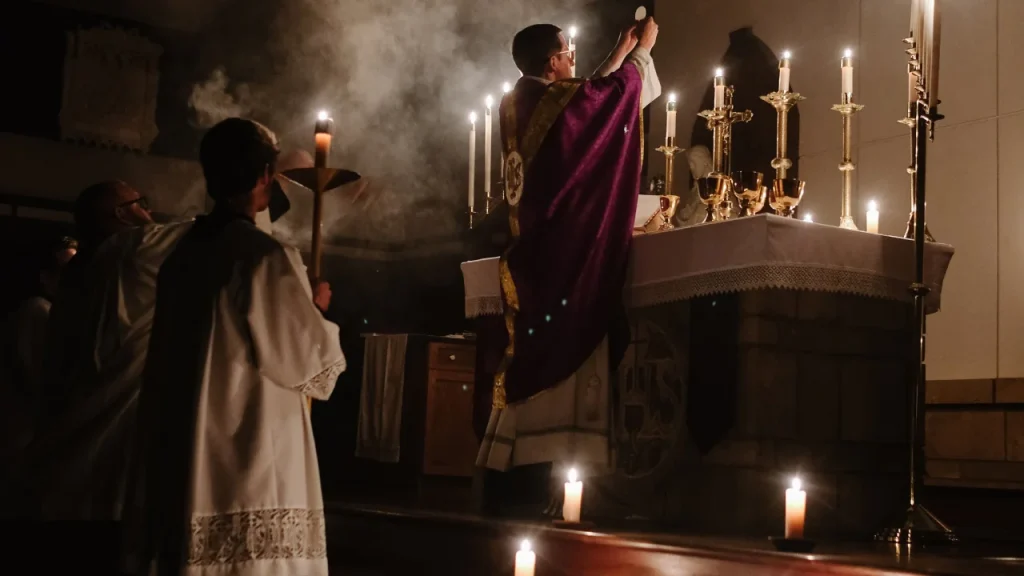Pastor Greg Laurie shares his testimony and encourages us to give all our worries to God, trusting His plans for us are good.
Listen to Audio Version:
Sunday Reflection on The Word of Lord
Third Sunday of Ordinary Time Year C :The Gospel reading is from Luke 1:1-4, 4:14-22,
Good morning Brothers and Sisters.
Today is the 3rd Sunday in Ordinary Time, Year C. The Gospel reading is from Luke 1:1-4, 4:14-22, and is
as follows:
Inasmuch as many have undertaken to compile a narrative of the things which have been
accomplished among us, just as they were delivered to us by those who from the beginning were
eyewitnesses and ministers of the word, it seemed good to me also, having followed all things closely
for some time past, to write an orderly account for you, most excellent Theophilus, that you may
know the truth concerning the things of which you have been informed.
And Jesus returned in the power of the Spirit into Galilee, and a report concerning him went out
through all the surrounding country. And he taught in their synagogues, being glorified by all. And
he came to Nazareth, where he had been brought up; and he went to the synagogue, as his custom
was, on the Sabbath day. And he stood up to read; and there was given to him the book of the prophet
Isaiah. He opened the book and found the place where it was written, “The Spirit of the Lord is upon
me, because he has anointed me to preach good news to the poor. He has sent me to proclaim release
to the captives and recovering of sight to the blind, to set at liberty those who are oppressed, to
proclaim the acceptable year of the Lord.” And he closed the book, and gave it back to the attendant,
and sat down; and the eyes of all in the synagogue were fixed on him. Then he began to say to them,
“Today this scripture has been fulfilled in your hearing.” All spoke well of him and were amazed at
the gracious words that came from his mouth. They said, “Is not this Joseph’s son?”
Brothers and Sisters, many biblical scholars have suggested that the author of Luke’s Gospel was Paul’s
personal physician referred to in Col. 4:15. It is clear from the first three verses of this Gospel that Luke’s
Gospel is based on accounts of firsthand witnesses who knew Jesus personally, heard him teach, saw his
miracles, and witnessed his atoning death on the cross and his rising from the tomb to everlasting life.
The Gospel of Luke, written around 70-80 AD, is reliable and accurate because it was written after “having
followed all things closely for some time past” and was based on narratives “by those who from the
beginning were eyewitnesses and ministers of the word”. It was based on the Tradition of the Church
as it existed then, as handed down by the early Church Fathers. Indeed this is how much of the New
Testament was written. People were not immediately writing whatever Jesus was saying and doing.
By Tradition, also known as Sacred Tradition [with a capita T to distinguish it from traditions], is meant the
body of teachings that originated from Jesus and the Apostles and explained over time by the early Church
Fathers and the Bishops who are the successors of the Apostles. It is the record of those teachings, the
explanations, the theology and pastoral application. These were initially handed down orally but were later
written down. Luke’s account, and indeed the other books in the New Testament, draw from this Tradition.
The Gospel is addressed to a certain Theophilus [a name which means “beloved of God”] who may have
been an important official at the time of writing. The purpose of writing is to provide “an orderly account”
about Jesus to Theophilus to enable him “know the truth” concerning Jesus of Nazareth who was sent from
the Father in heaven and anointed by the Holy Spirit to bring us the good news and power of God’s
kingdom. The Gospel is certainly also addressed to us today as the beloved of God, to enable us also know
the truth about Jesus.
In Luke 4:14-22 the Evangelist tells us about the beginning of Jesus’ public ministry. We are told in Luke
3:23 that Jesus was about 30 years old when he began his public ministry. It will be recalled that after Jesus
was baptized by John and anointed by the Spirit at the River Jordan (Luke 3:21-22), he spent 40 days in the
wilderness to devote himself to prayer and fasting (Luke 4:1-13). At the end of this period of his spiritual
preparation and testing, Luke tells us that Jesus “returned in the power of the Spirit to his own land of
Galilee” (Luke 4:14). Jesus begun his public ministry in Galilee in fulfillment of the prophecy of Isaiah 9:1,
3. The people in the synagogue at Nazareth must have been familiar with Jesus because he grew up in their
town, and must have regularly attended the synagogue for the weekly Sabbath service. He was known by
many in Nazareth as a “carpenter” (Mark 6:3) and “son of Joseph” (Luke 4:21).
Jesus reads from Isaiah 61:1-2 and announces that the ancient prophecy about the Messiah has been
fulfilled in him. Jesus is saying that he is the long-awaited Messiah. In politico-speak, Is. 61:1-2 is like a
manifesto of the Messiah. Jesus declares that he has come to:
• preach good news to the poor
• proclaim release to the captives
• restore sight to the blind
• set at liberty those who are oppressed
• proclaim the acceptable year of the Lord.
The good news Jesus refers to is that the reign of God has begun. It is the good news that Jesus has come
to save mankind from sin and death. It is the good news of liberty from sin and freedom to live as sons and
daughters of God – Ephesians 1:13. It is the good news of peace and a restoration of our relationships with
God – Ephesians 6:15. It is the good news of hope of heaven and everlasting life – Colossians 1:23. It is
the good news of immortality as God gives everlasting life – 2 Timothy 1:10.
The good news also is that Jesus came to release us from the bondage of Satan. He came to set us free to
become children of God. In his healing ministry, he healed many from all ailments of physical and mental
nature.
Brothers and Sisters, Jesus’ mission is still relevant to us today. Jesus still comes to us today to bring us
healing and restoration, pardon and freedom from the oppression of sin, despair, hopelessness, and
destruction.
A great Sunday to you all and God bless!
Matthias Nalyanya






